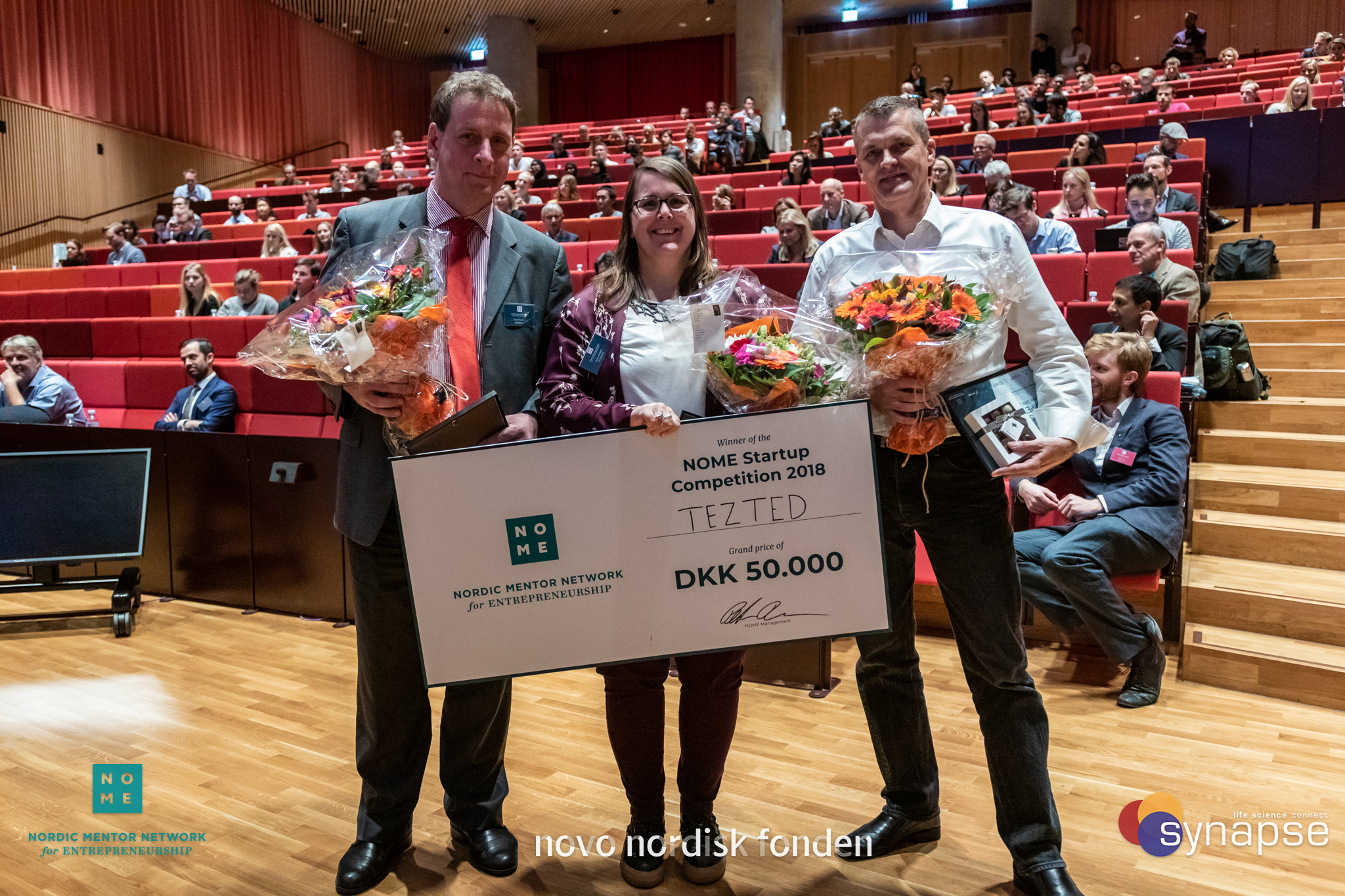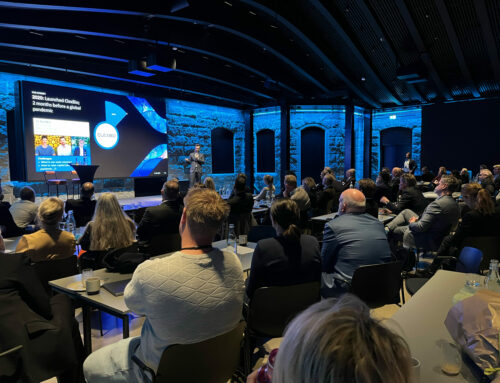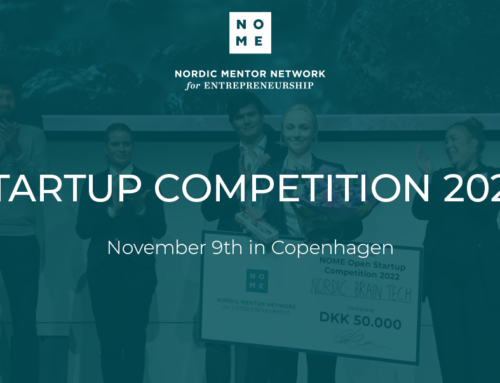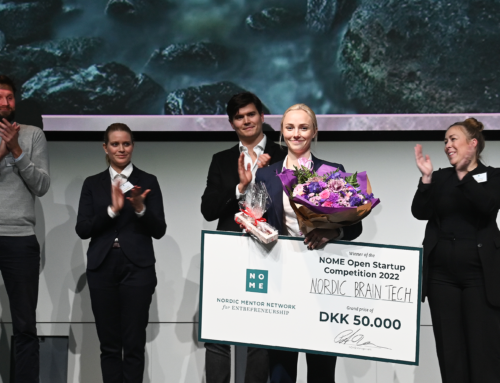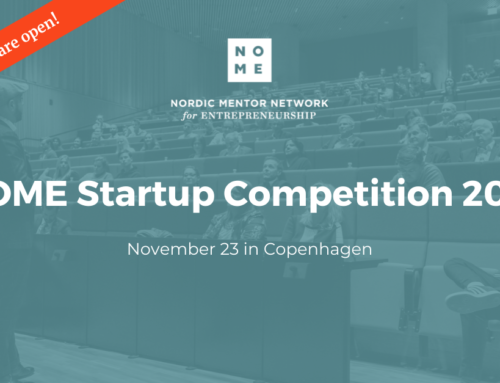Three life science start-ups to keep an eye on
To celebrate the strong Nordic life science ecosystem, the Nordic Mentor Network for Entrepreneurship hosted the NOME Annual Meeting. Nine start-ups were selected to pitch for the price of 50.000 kroner and a spot in the NOME network. Three finalists were chosen on the day. Read about their life-saving solutions here.
At the NOME Annual Meeting life science experts, enthusiasts, and entrepreneurs from around the world gathered in the Maersk Tower in Copenhagen to celebrate the strong, Nordic life science ecosystem. This was also the day where the Start-Up Competition took place.
Nine start-ups had been chosen from a pool of more than 70 applications to pitch in three tracks on the day: Lifescience and biotech, medtech, and diagnostics. After a round of pitching, one winner from each track was selected to pitch in front of the full audience in the auditorium of the tower. Only one of them took home the prize of 50.000 kroner and a spot in the Nordic Mentor Network for Entrepreneurship, but all three companies showed a great product, a strong team, a well-organized structure, and enough financing – and thus belief from the market – to achieve their goals.
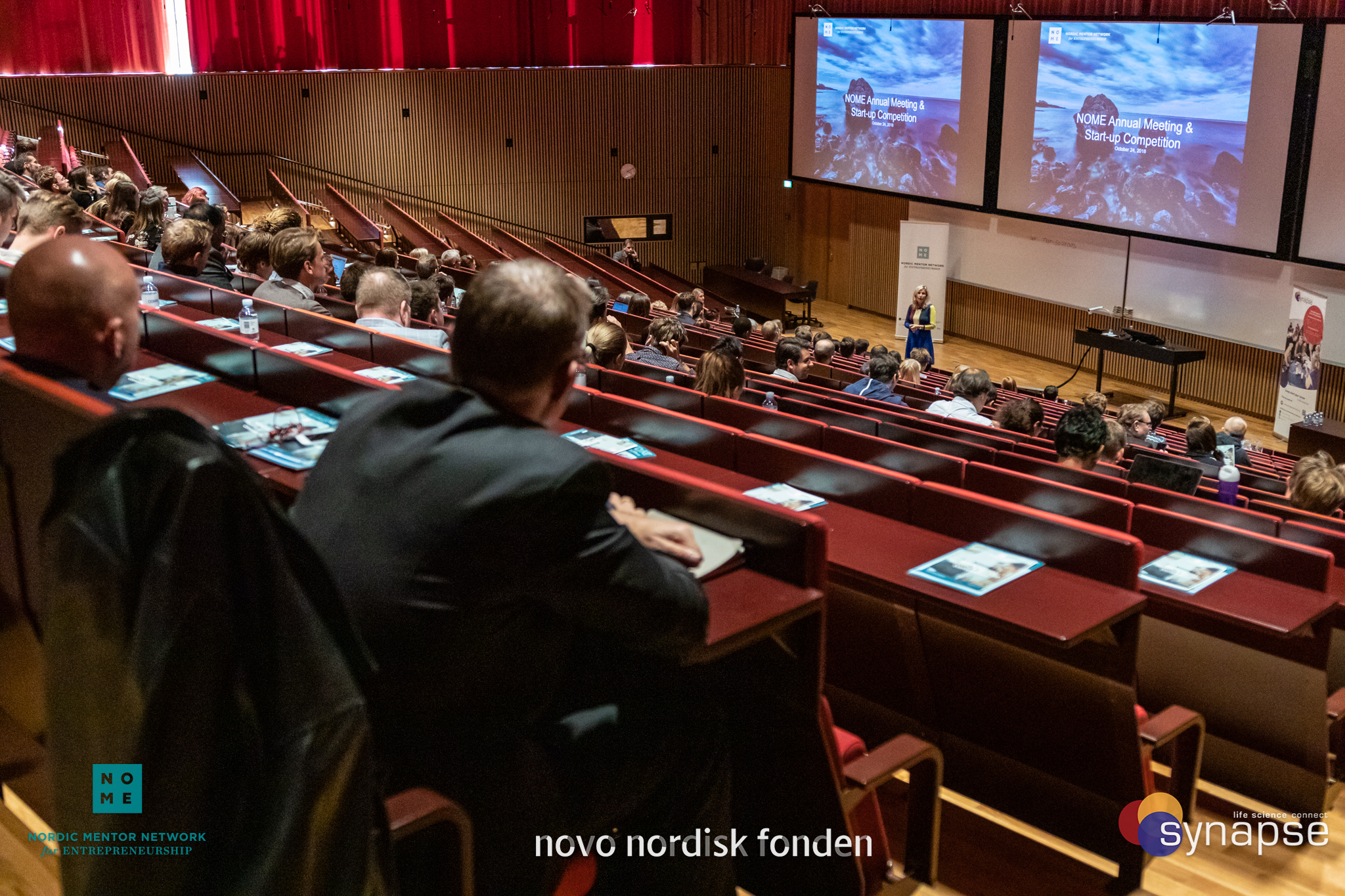
The three life science finalists were:
LIPUM
From the life science and biotech track Swedish company Lipum pitched their novel target molecule for the treatment of chronic inflammatory disease. Worldwide millions of people suffer from chronic inflammatory diseases like Rheumatoid Arthritis or Juvenile Idiopathic Arthritis – both which Lipum addresses. The start-up believes, that there is a significant clinical need for new selective, biological drugs directed towards different targets that do not suppress the immune system.
The markets today are namely dominated by drugs that suppress the immune system in the patients, which are then prone to get secondary infections. Also, one-third of the patients are non-responsive to the blockbuster drug treatment, and in one-third of patients the drug loses effect within three to five years. Lipum is currently developing an alternative to the current biological treatments. Lipum’s novel treatment uses a new and unique target molecule and reduces the need for corticosteroids and the use of immunosuppressant. An innovation that recently secured the company a Horizon 2020 SME Instrument grant of 23 million SEK.
MECSENSE
On a mission to improve the quality of life for diabetics, Mecsense was the winner of the medtech track that got to pitch in the auditorium at the NOME Annual Meeting. Mecsense is a Norwegian start-up company established in 2011. They have developed the world’s first non-invasive and continuous glucose indicator based on a novel patented sensor technology.
With Mecsense there is no need for needles or constant manual testing throughout the day. The sensor is strapped to the upper arm of the patient in close connection to the patient’s smartphone and an alarm will then sound if the blood sugar is out of the critical limits – whether the patient is awake or asleep.
The innovation has gone through five years of R&D, have one patent and one patent pending, and is in both in-vitro and in-vivo trials.
Approximately 425 million adults were living with diabetes in 2017. That number is expected to rise to 629 million by 2045. The Mecsense CGM Indicator will improve the life quality of the millions of insulin-dependent diabetics worldwide, offering a method for diabetics and pre-diabetics to better control their lifestyle as well as offering a potential new diagnostics method and at the same time building the world’s biggest glucose database.
TEZTED
The Finnish university spin-out Tezted from the University of Jyväskylä was the winner of the diagnostics track – and the overall winner of the Start-Up Competition at the NOME Annual Meeting. Tezted is innovating the way complex diseases are diagnosed with their product Tickplex, a complete diagnostic test for tick-borne diseases. Ticks are responsible for infecting humans with diseases such as Lyme disease, Neuroborreliosis, and Relapsing Fever.
Every 120 seconds, someone is diagnosed with a tick-borne disease in the Nordics, but the current diagnoses methods are slow, expensive, and test for only one microbe at a time. Tickplex can test up to 20 tick-borne associated microbes simultaneously – with a 90 % cost reduction for the patients. The results are processed on a web application, that can be accessed by clinicians anytime, anywhere.
Tezted wants to be the new gold standard in the tick-borne disease diagnostics test industry, and their innovation is currently protected with four patents and four more coming at the end of 2018. Tezted is also ISO 13485:2016 certified and all Tickplex products are CE and IVD certified.
Read more here:


